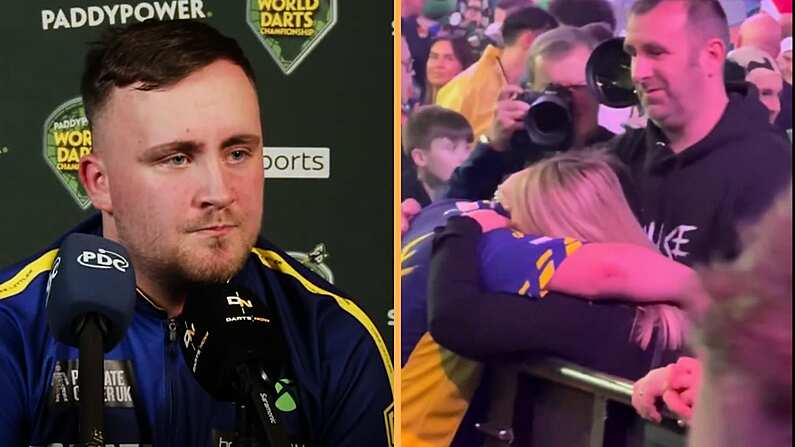The withdrawal of Rafael dos Anjos from his upcoming fight with Conor McGregor has sparked a wave of nonsense which now threatens to engulf the world.
Rafael dos Anjos has broken his foot, apparently. As a non-UFC fan, this sounds a wholly plausible story. Man training in a combat sport suffers a physical injury.
But the sports psychologists and mystics who populate the internet find this far too commonplace an explanation. The word is now he broke his foot only because the mountain of intimidating rhetoric emanating from Straffon transformed him into a panicky, gibbering wreck.
McGregor's 'mind games' are so powerful they can now inflict physical injury all on their own.
Another one to pull out vs @TheNotoriousMMA! The man has got them all shook ????
— jon flanagan (@jon_flan93) February 23, 2016
McGregor Mind Games too strong that his opponents always pulls out of Injury!
— Pierré Yip (@PierreSidecomb) February 23, 2016
Rafael Dos Anjos backed out of UFC 196 ? these people can't take the McGregor mind games ??
— Jordan Swadberg (@Swadberg) February 23, 2016
Rafael Dos Anjos was training too hard a week out from fighting McGregor...? got in his head before he got in the cage!! #UFC196
— Azz (@aaronmcfadyen) February 23, 2016
Really don't think Dos Anjos is injured, just think McGregors got in his head just like he did Aldo
— LewisTelfer. (@HungTelfer) February 23, 2016
@TheNotoriousMMA what am I seeing not 1 Brazilian but 2 that have pulled out of a fight!!! Because they are afraid of the fighting Irish ??
— Ian Harte (@ianharte23) February 23, 2016
There is a race of UFC fan abroad on the internet who gleans an incredible amount of info from the pre-match hype machine. They discern so much subtext in the build-up one could say they don't even need to watch the fight. They know the full story. And their conclusion is always the same. McGregor has psyched his opponent out.
Every gobbet of bullshit that emanates from Conor McGregor's mouth is now regarded as an ingenious psychological ploy.
'He's inside his head', they observe knowingly.
The whole business reminds one of a delightful two-year-old article by Rory Smith in ESPN FC on the art of 'mind games' in football management, in which he made the important observation that 'it can be quite hard to tell what is a mind game and what is just a man saying something'.
Smith discerned that the most important factor in being seen to 'win at a mind game' is to be regarded as a 'master of mind games'. In football management, once you gain a reputation for engaging in mind games everything you do is seen through that prism.
Most importantly, they are also solely the preserve of winners.
A manager of Aston Villa can not be said to indulge in mind games. If he tries he'll just be accused of talking shit and losing the plot.
Smith established that Mourinho and Ferguson can never be determined to lose a mind game (though Mourinho's reputation has taken such a hit lately, it's possible he could now be portrayed as the loser in a mind game war).
Say Fergie gets sucked into a war of words with another manager. Whether he is the instigator (Keegan, 1996) or the victim of mind games (Benitez, 2009), he will emerge as the 'winner' of the resultant 'mind game' battle. Even on occasions, when his attempts at mind games weren't followed by a title win (the Blackburn, Tim Flowers and 'bottle' fiasco of 1995), his reputation as a master of the mind game wasn't dented. It's recalled now that Blackburn only won that year in spite of Fergie's inspired mind tactics.
No matter how the exchange pans out, it will be framed in such a way that Fergie emerges as the victor.
Likewise, with McGregor. Because he has established himself as a winner, it, therefore, follows that everything he does in the pre-fight build up is shot through with mastery.
And so his pre-fight persona is seen as part of his grand strategy for winning fights. Rather than as a means of selling tickets.









